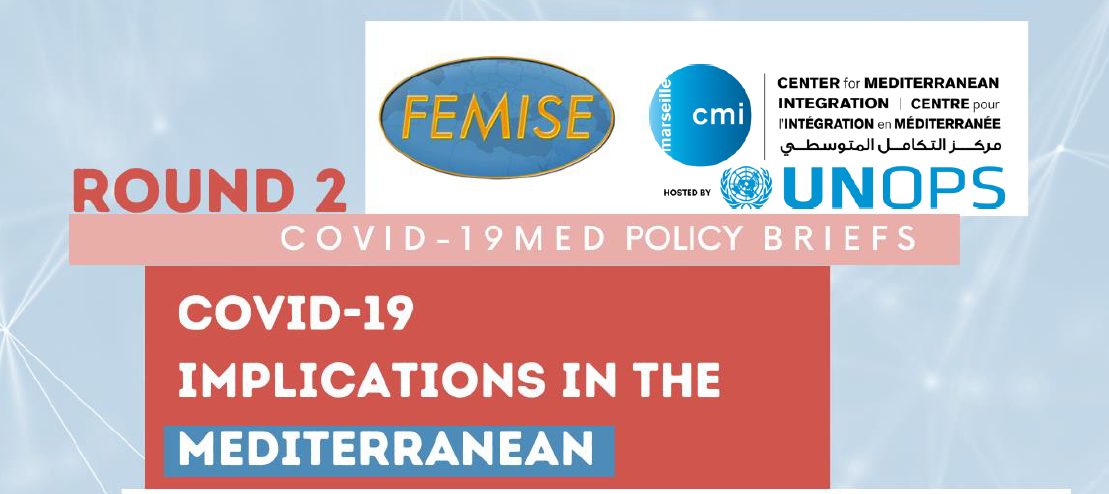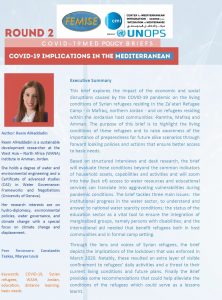
The coronavirus has proved to be a serious threat not only to people’s health but also to economies and societies of all countries, regardless of their level of development. This crisis presents a real test to the resilience of the Southern and Eastern Mediterranean countries, as it came at a time when they were challenged to keep their economies growing, facing increasing unemployment and scarce resources. The way out of the crisis will greatly depend on how countries in the region prioritise their actions, and on how they integrate and cooperate with each other in key sectors. Following the success of the first round of “COVID-19 MED BRIEFS” launched by the Center for Mediterranean Integration (CMI) and FEMISE, the two institutions decided to join forces again and launch a second round. This series of Policy Briefs is intended to pave the way for more in-depth thematic analyses and recommendations.
The twenty-first COVID-19 MED BRIEF, entitled “Exploring the impact of COVID-19 on the “livelihoods” of Syrian refugees in Jordan” by Reem AlHaddadin, West Asia – North Africa (WANA) institute, is available here
 Summary :
Summary :
This brief explores the impact of the economic and social disruptions caused by the COVID-19 pandemic on the living conditions of Syrian refugees residing in the Za’atari Refugee Camp – in Mafraq, northern Jordan – and on refugees residing within the Jordanian host communities -Ramtha, Mafraq and Amman. The purpose of this brief is to highlight the living conditions of these refugees and to raise awareness of the importance of preparedness for future alike scenarios through forward looking policies and actions that ensure better access to basic needs.
Based on structured interviews and desk research, the brief will evaluate these conditions beyond the common indicators of household assets, capabilities and activities and will zoom into how (lack of) access to water resources and educational services can translate into aggravating vulnerabilities during pandemic conditions. The brief tackles three main issues: the institutional progress in the water sector, to understand and answer to national water scarcity conditions; the status of the education sector as a vital tool to ensure the integration of marginalized groups, namely persons with disabilities; and the international aid needed that benefit refugees both in host communities and in formal camp setting.
Through the lens and voices of Syrian refugees, the brief depicts the implications of the lockdown that was enforced in March 2020. Notably, these resulted an extra layer of visible confinement to refugees’ daily activities and a threat to their current living conditions and future plans. Finally, the Brief provides some recommendations that could help alleviate the conditions of the refugees which could serve as a lessons learnt.
This Policy Brief is produced as part of the series of Policy Briefs on « Responding to the Challenges of COVID-19 in the Mediterranean » that is undertaken in partnership between FEMISE and the Center for Mediterranean Integration (CMI).
The views expressed in this Brief are those of the authors and do not reflect the views of CMI or FEMISE. The contents have not been subjected to verification by CMI or FEMISE and their publication does not reflect ownership by CMI or FEMISE.


